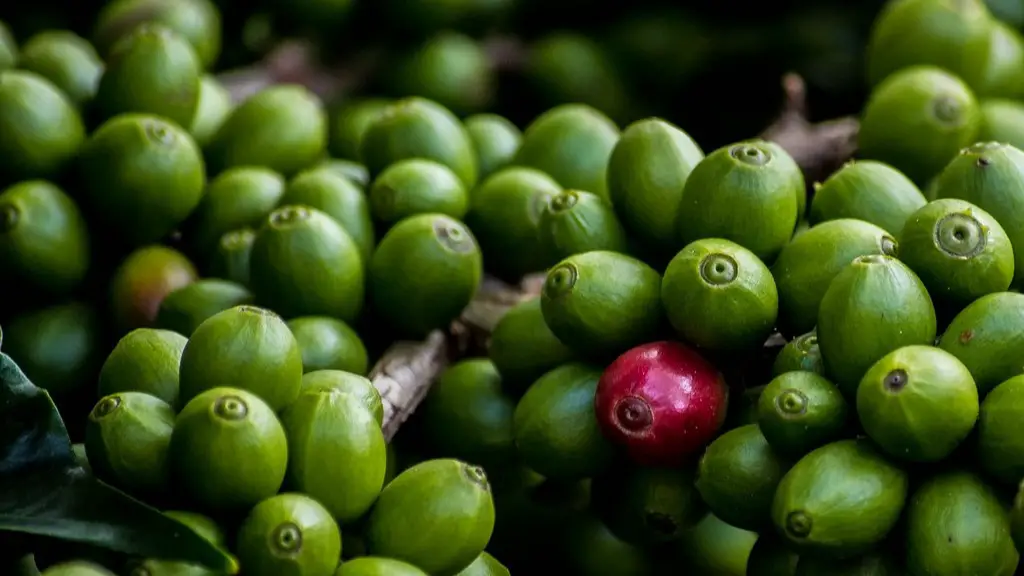Is it Better to Not Drink Coffee?
Coffee has been around for centuries, and various cultures across the world have their own ways to brew, roast and source the beans. Despite being one of the most popular drinks in the world, there is a debate as to whether drinking coffee is beneficial, or detrimental, to one’s health. Much of the debate surrounding this topic comes down to the sheer amount of caffeine in one cup of coffee, with many studies conducted to analyse the effects it can have on both the short term and long term health of an individual.
Experts agree that the effects of caffeine, while they can be positive, are usually quite limited. Caffeine is a stimulant, meaning it can make a person more alert and prepared to take on tasks. Caffeine may also have an influence on cognitive performance, giving someone a short-term boost in their thinking capabilities. However, the most positive effects of caffeine can be offset if too much is taken in one go. Too much caffeine can cause an increased heart rate or impact your body’s natural levels of cortisol, the stress hormone.
The long term effects of drinking coffee can also be of concern. According to Dr. Rafael Flores, a neurologist at Caltech Medical Center, “the long-term impact of drinking coffee on the nervous system is still poorly understood”. This means that coffee drinkers may be risking their health for the short term benefits. Studies on coffee drinkers have concluded that too much caffeine can result in anxiety, difficulty focusing and a feeling of restlessness.
Regular coffee drinkers will be aware of the potential side effects, especially if they have experienced them themselves. As with anything, moderation is key. A few cups of coffee a day should be ok for most people, however, if an individual is particularly sensitive to caffeine is it recommended to avoid it altogether. Coffee has also been linked to health issues such as diabetes and heart problems, but the research on this is still inconclusive and the impact coffee has in such cases is not certain.
It’s probably safe to say that coffee isn’t terrible for you if taken in moderation, however, the risks still exist. If you’re worried about your intake, or you know you have an intolerance, it’s probably best to avoid coffee altogether. And remember, caffeine is found in more than just coffee, many beverages such as energy drinks and soft drinks contain it too.
What About Decaf Coffee?
Decaf coffee is an often overlooked alternative to regular coffee and is one that may fit perfectly into the lifestyle of someone trying to cut down on their caffeine intake. Due to the decaffeination process, the amount of caffeine in this type of coffee is much lower than traditional coffee, which is great for people trying to reduce their caffeine levels. Despite the difference in caffeine levels, the taste of decaf coffee is still much the same as regular coffee, so those switching to a decaf option don’t have to sacrifice out on taste.
Decaf coffee offers many of the same benefits of regular coffee and can even be beneficial for people who don’t drink coffee at all. Decaf still contains numerous antioxidants and does slightly increase energy levels, but the effects can be much subtler. Thanks to this, decaf coffee can be an alternative to those wanting some of the benefits of coffee but without the harsh effects of too much caffeine in their system.
Benefits to Not Drinking Coffee
Not drinking coffee has its own set of benefits. Firstly, in the short term, caffeine can have a sedative effect, which can impair fine motor skills and cognitive functioning, while over consumption can also lead to anxiety and restlessness. Avoiding coffee altogether can help one to avoid any uncomfortable sensations caused by the effects of caffeine.
In the longer term, if one chooses not to drink coffee, it could result in some substantial long-term health benefits. This could include a lowered risk of cardiovascular disease, a reduction in blood pressure, and an improved functioning immune system. In addition, research suggests that those who do not drink coffee also have a lower risk of developing diseases such as type 2 diabetes.
There are plenty of other benefits to not drinking coffee too. For example, coffee contains numerous acids which can cause teeth staining and bad breath. It is also quite expensive to purchase coffee from coffee shops, whereas making it yourself is much cheaper and can be drank at any time of the day. This could be a far better alternative to purchasing coffee on a regular basis.
What Alternatives to Coffee Are There?
If cutting down on coffee or avoiding it altogether is something you are looking to do, there’s still no need to missing out on the ritual of drinking it. Below we’ve listed some alternatives to coffee that you can try:
Herbal teas – Herbal teas are readily available and are usually caffeine free. Some of these contain ingredients that can offer a mild natural boost in energy, as well as being rich in antioxidants and vitamins, similar to coffee.
Green Tea – Green tea can be a great source of caffeine, whilst also offering many other health benefits such as reducing the risk of cancer, aiding digestion and potentially lowering cholesterol.
Fruit juices – A great start to the day, fruit juices can be a much fresher and healthier alternative to a sugary cup of coffee. Opting for squeezed juice over ready-made or concentrated juices is ideal for getting the best results.
Matcha – Matcha is a Japanese green tea that has been ground into a powder. Matcha contains high levels of caffeine and antioxidants, and can be mixed with both hot and cold water.
Smoothies – Smoothies are a delicious and nutritious way to start the day. They can be filled with a range of fruits and vegetables, with added berries and yogurt to get an extra boost.
Are There Other Ways to Stay Alert?
Staying alert and productive doesn’t have to involve drinking cups of coffee, there are plenty of other methods that one can try to stay alert. Exercise is a great way to increase alertness and reduce fatigue; even a short walk of around 20 minutes can be enough to increase energy levels. Eating a balanced breakfast is also a good tip as this can help kickstart your day. Keeping up with regular sleep patterns is also important as this can help one to stay productive throughout the day.
Other methods of increasing alertness can include consuming natural energisers such as fruits, whole grains and nuts, as well as listening to music and taking short breaks throughout the day. Additionally, intense physical and mental tasks can also help one feel more alert, so try something different rather than sitting at a desk for hours on end.
Are There More Natural Options to Coffee?
As mentioned above, there are plenty of natural and healthier alternatives to combating fatigue and lack of alertness without relying on a cup of coffee. Natural energisers such as maca powder, panax ginseng, spirulina and bee pollen can give a boost and are great for when looking for a pick-me-up. These can be added to smoothies, or can simply be taken on their own.
Coconut water and organic honey are both excellent sources of natural, healthy energy; and have been found to have many other health benefits too. Additionally, there are numerous herbs and supplements available that can be taken in the form of capsules; these can all natural, effective ways to increase energy levels minus the risks of caffeine.
How to Make Healthy Drinks?
Making a healthy drink can be a very simple process. There are endless recipes available, and they will be different depending on the person’s taste. A great way to make a healthy drink is to add some herbs and spices to the mixture. For example, ginger and cinnamon are both known for their anti-inflammatory properties, as well as helping with digestion. They can easily be added to a smoothie, or a cup of green tea.
Fruits are also great for making healthy drinks as they are packed full of vitamins and minerals, plus they bring a natural sweetness to the mix. Berries, in particular, are a great way to add a nutritional boost. If a person’s taste is more savoury, one can add some green vegetables too, such as spinach and broccoli. Adding a spoonful of honey to the drink will also add to the nutritional content, and can help to sweeten it at the same time.
Making healthy drinks is a great way to keep hydrated, as well as replenish the body’s nutrient levels. Plus, as it is so adaptable, it can be tailored to suit every individual’s taste and needs.





